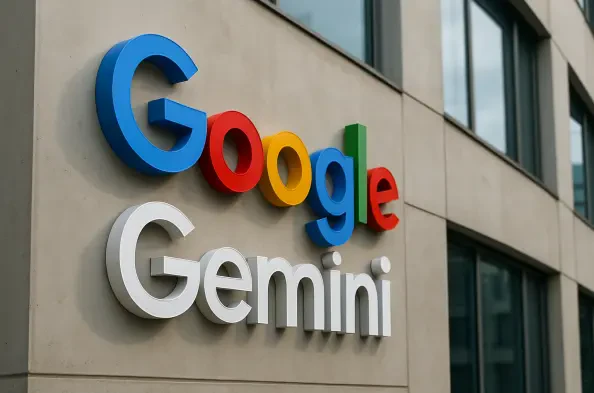I’m thrilled to sit down with Vernon Yai, a renowned data protection expert with deep expertise in privacy protection and data governance. With a career dedicated to risk management and pioneering detection and prevention techniques, Vernon brings a unique perspective on how emerging technologies like AI intersect with enterprise security. Today, we’re diving into Google’s latest offering, Gemini Enterprise, exploring its role in the AI landscape, its innovative features for businesses, and how it addresses governance and usability in a rapidly evolving tech world.
How would you describe Gemini Enterprise and its place within the broader scope of Google’s AI initiatives?
Gemini Enterprise is Google’s latest agentic AI platform, designed to integrate various components like Gemini models, first and third-party agents, and what used to be called Agentspace into a unified system. It’s essentially a one-stop shop for enterprises looking to leverage AI through a chat interface. Within Google’s broader AI strategy, it stands out as a push toward centralizing and simplifying AI adoption for businesses, building on previous efforts like Duet AI for Workspace by offering a more cohesive and enterprise-focused solution.
What sets Gemini Enterprise apart from other AI platforms Google has introduced in the past?
What makes Gemini Enterprise unique is its emphasis on integration and governance. Unlike earlier platforms that might have focused on specific tools or isolated features, this platform brings everything together under a single interface. It’s not just about providing AI capabilities but ensuring they’re manageable at an enterprise scale with a central governance framework. This is a significant evolution from past offerings, as it prioritizes security and control alongside innovation.
Can you elaborate on the central governance framework that’s part of Gemini Enterprise and why it matters to businesses?
The central governance framework is a critical piece of Gemini Enterprise. It’s designed to support audits and monitoring, which are essential for businesses to ensure compliance and security when deploying AI at scale. This framework allows companies to track how AI tools are being used, identify potential risks, and maintain accountability. For enterprises handling sensitive data, this kind of oversight is non-negotiable, and it helps bridge the gap between innovation and responsibility.
How does this platform empower businesses through its ecosystem of over 100,000 partners?
The ecosystem is a game-changer. With access to over 100,000 partners, Gemini Enterprise connects businesses to a vast network of expertise, tools, and services. This means companies can tap into specialized solutions or collaborate with partners across industries to tailor AI applications to their needs. It’s about amplifying what a single business can achieve by opening doors to resources and innovations that would otherwise be out of reach, fostering collaboration on a massive scale.
Google introduced a low-code visual builder with Gemini Enterprise. Can you walk us through how this tool supports enterprise users?
The low-code visual builder is a standout feature for making AI accessible. It’s designed to let users—often non-technical ones—build or customize AI solutions through a user-friendly, drag-and-drop interface. This lowers the barrier to entry, enabling business teams to create workflows or applications without needing deep coding skills. For enterprises, it means faster innovation and the ability to adapt AI tools to specific challenges without always relying on IT departments.
What can you tell us about the pre-built contact center agents included in Gemini Enterprise?
These pre-built contact center agents are specialized AI tools tailored for customer service environments. They can handle a range of tasks, from answering common inquiries to routing complex issues to the right department. What’s impressive is their customizability—businesses can tweak these agents to align with their unique processes or customer needs. It’s a practical way to enhance efficiency in high-volume settings while maintaining a personalized touch.
There’s a lot of talk about Gemini Enterprise automating workflows. Could you share a real-world example of how this works?
Absolutely. Take a marketing team, for instance. With Gemini Enterprise, they could automate the entire process of creating and deploying personalized email campaigns. An AI agent might analyze customer data, draft tailored content, and schedule distribution—all without manual input at every step. This kind of automation saves time and ensures consistency, leading to smarter outcomes like higher engagement rates or better resource allocation for the business.
With AI vendors often changing product names, there’s been some confusion around Gemini being used for multiple offerings. How do you think Google can address this challenge?
It’s true that naming overlaps can confuse customers, and Gemini being the name for a chatbot, a model family, and now this platform is a prime example. Google could tackle this by focusing on clear communication—perhaps by using distinct sub-brands or descriptors for each offering under the Gemini umbrella. Transparency about why names are chosen and how products connect would also help. Ultimately, it’s about building trust through clarity so enterprises feel confident in what they’re adopting.
Looking ahead, what is your forecast for the impact of platforms like Gemini Enterprise on the future of enterprise AI adoption?
I believe platforms like Gemini Enterprise will accelerate AI adoption by making it more accessible and manageable for businesses of all sizes. The focus on governance, ease of use, and expansive ecosystems will likely set a new standard for what enterprises expect from AI solutions. Over the next few years, I foresee a shift where AI becomes less of a standalone tool and more of an integrated, invisible force driving everyday operations—provided vendors continue to prioritize security and user trust alongside innovation.






